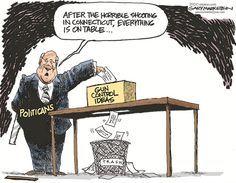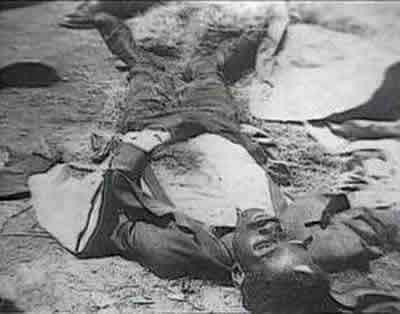My heart goes out to the families and victims affected by this tragedy, it seems that our country has been in mourning for several weeks, but I’m inspired by the courageous acts of selflessness and bravery from ordinary people and first responders who run towards the danger to save as many lives as possible.
This is a sensitive and painful event to talk about because there are many complex and deep issues that intersect and I did not feel that this piece did justice to understanding America’s gun policies, approach to violence, and overall democracy. I saw various key British figures such as PM May calling for a change in laws and Ariana Grande also speaking out, but no one explored it with breadth and depth. First, American citizens overwhelmingly support gun control laws; the media usually paint this (and many other issues) as a black and white issue as either you are for or against. However, many gun owners do want stricter control, universal standards for background checks, and banning full-automatic assault weapons.
An October 2016 Gallup poll showed that 55% Americans wanted stricter laws on gun sales. In April 2013 it polled Americans about the U.S. Senate’s failed attempt to pass a measure to expand background checks for gun purchases, when 65% of Americans felt they should have. In that same poll, 83% said they would vote “for,” in this hypothetical scenario, “[S]uppose that on Election Day you could vote on key issues as well as candidates. Would you vote for or against a law that would — Require background checks for all gun purchases?” And 60% would hypothetically vote in this scenario, “[F]or a law that would — Reinstate and strengthen the ban on assault weapons that was in place from 1994 to 2004?” in their January 2013 polling. So, yes there is support among the citizenry for tighter controls, but our democratic institutions are failing to represent the majority consensus.
 From pinterest.co.uk
From pinterest.co.ukWhat do I mean that? Well, there is a political economic side that I will briefly delve into; powerful lobbyists like the National Rifle Association (NRA) support candidates on both sides of the aisle, which has created a deadlock on this issue. The Republicans (conservatives) will notoriously reject any stricter controls and are currently trying to expand access, while Democrats (liberals) will not challenge or lead a movement to bring in legislation. Hence, why Obama took matters into his own hands in 2016 and passed stricter measures, however, these executive orders can be undone in the next administration, which Trump did in April 2017. This may make you wonder, ‘Why did Obama wait until his last few months in office to pass an executive measure, while he had been talking about it since 2012’? This is because gun sales skyrocket under Democratic leadership as political rhetoric stimulate panic buying, and policies are loosened (deregulated) under Republican administrations allowing big firms to sell more, especially abroad (i.e. current legislative agendas). Hence, this is the political economic approach– on the surface, people and institutions may seem inept or unable to act effectively, however when we look at the structure we discover that it was meant to serve the most powerful.
Thus, this brings me to discuss violence in the U.S., in terms of school shootings, the earliest shooting incident can be traced back to 1764 in Pennsylvania and there have been hundreds of incidences since, usually only the teacher or a specific person is targeted. The Las Vegas massacre was not the largest mass shooting in American history,
 1921 Greenwood Massacre. Image from the takedownthatname.com
1921 Greenwood Massacre. Image from the takedownthatname.comwe still have Wounded Knee massacre in 1890, in which 150 Native American (indigenous) men, women, and children were killed or the Greenwood massacre (pictured above) near Tulsa, Oklahoma in 1921 where 300 Black citizens died. The only difference is that these historical events had largely non-white victims and were not given critical attention to, until recent years. While the Las Vegas’ massacre has not been officially linked to any extremist ideology, we see there is another problem with mental health, thus while gun controls are needed – mental health services are desperately needed and violence should be addressed as a public health crisis, not a just a criminal justice or security problem. Thus, this brings us to another embattled political issue of healthcare, or the lack thereof.
The same approach we take to discuss the prevention of Diabetes type II, should be the same for violence, especially gun violence; and those with mental health problems need stronger linkages to services. Jones wrote in his piece about the recent shooting and gun control laws as an allegory to slavery and abolition. Again, the majority support is not for owning military-grade weapons nor is there a distinct geographic, racial, or even political divide on this issue that we could compare to 1861. There are no prominent leader(s) with powerful influence that can introduce and garner support for new legislation or secession like President Lincoln vs. Jefferson Davis. Rather reforms will have to be part of a grassroots, progressive movement that is intrinsically linked to reforming the democratic system where politicians are accountable to voters and not donors and health (including mental health) is seen as an inalienable right. Ideally, this time, we will not need to bear arms to obtain this.
You can find his original article here, where I already comemnted: https://www.standard.co.uk/comment/comment/dan-jones-more-carnage-and-still-america-is-deluded-over-guns-a3650451.html
As always please share your thoughts with me, I am on Facebook and twitter.

